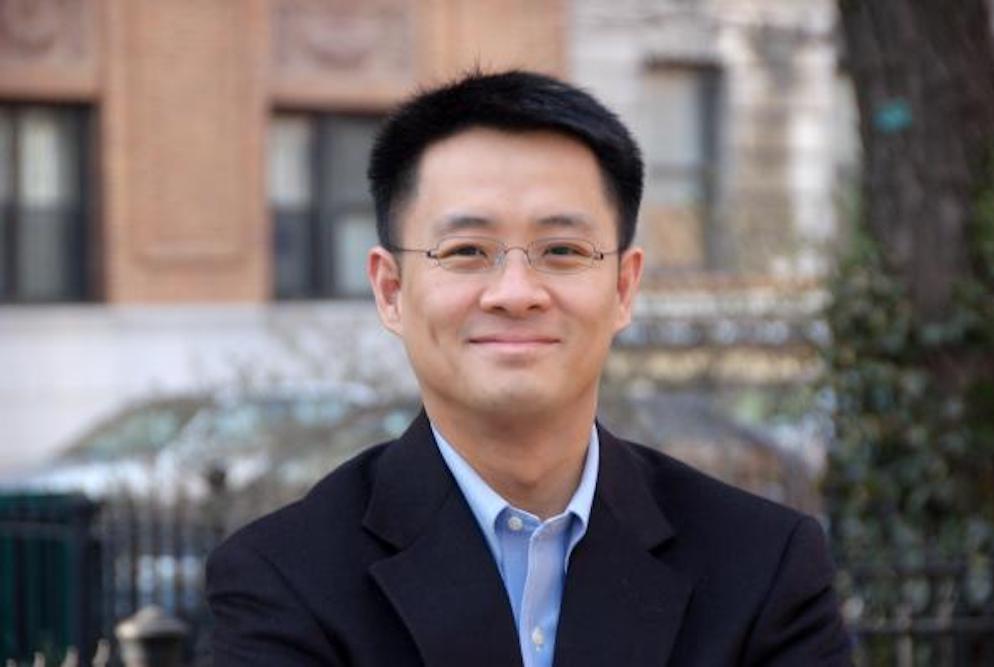
Philip P. Pan is the associate managing editor for the New York Times and author of Out of Mao’s Shadow. Before moderating the Zócalo/University of Toronto event “What Would a New Cold War Mean for the World?,” part of The World We Want series, Pan visited Zócalo’s green room to chat about Morocco and his long-delayed honeymoon, what makes a good mentor, and how he handles pressure.
What superpower would you most like to have?
Time travel—it would be a way to avoid being bored.
If we weren’t in a pandemic, where is the first place you’d travel to right now?
Before this whole thing happened, [my wife and I] were planning a trip to Morocco. I’d just like to go do that. We’ve been married, what is it now? Fourteen years, it will be. And we’ve been putting off our honeymoon all this time. We were supposed to finally take the time to do it, and then COVID interrupted.
What dessert do you find impossible to resist?
I’m not a big dessert guy, to be honest. I guess there’s some desserts in Asia that I miss. The Taiwanese crushed ice desserts. You don’t really see that in the States that much.
Who was your childhood hero?
The 1986 New York Mets. That whole team, basically. It was the first time that my team had won the World Series in my life—and the last time too. I’ll never forget it. And it’s just the beginning of a beginning of a long, painful history with this team.
What’s the first byline you wrote that you were especially proud of?
I was an intern at the Washington Post. My first front page story ever was about the community’s reaction after an elementary school had been ransacked. And later that summer as an intern, I wrote a piece about a corruption scandal involving a building that was leased to a friend of the mayor. I was happy to report that. It was my first experience as a young reporter making a difference. I don’t think I had the opportunity to write about local affairs in that way before.
What’s the best advice you’ve ever received?
Early on—I don’t even remember who gave me the advice—but as a journalist, it was useful. The advice was that you should always find an editor or a mentor who you’re working with that will teach you something; that will go out of his or her way to make sure that you’re continuing to learn. So I’ve always tried to do that throughout my career, even now.
When are you at your most resilient?
Resilience—you usually use that word when you’re under pressure. As a journalist, there are different kinds of pressures you face. There’s deadline pressure, and there’s the pressure of trying to find the story. I think I do pretty well under both of those circumstances. It doesn’t happen a lot, but there are times when you’re out reporting where the environment can be dangerous, both for you and possibly the people you’re talking to. And I haven’t done that a lot. But I have found that that requires a degree of resilience.
When you’re in that kind of a situation, how do you handle it?
People respond to that kind of pressure in different ways. And different things work for different people. I’ve found that when I’ve been in those situations, I get very focused on getting the facts that I need, and then getting out of the situation as quickly as possible. As a journalist, you want to sit in a place and observe as much as you can, and be patient and absorb. But when you’re in situations where there’s risk, you have to act against that instinct.
What’s the last film or documentary you saw that moved you?
I just watched last night an HBO film called All the Way about Lyndon Johnson’s first partial presidential term. It was before his first election. It was a subtle look at how power works in the United States. You talk about resilience—there’s an echo there. It was about the pressures he was under and the pressures he put himself under, and his ability to navigate constraints. And it was complicated, but I enjoyed it.



